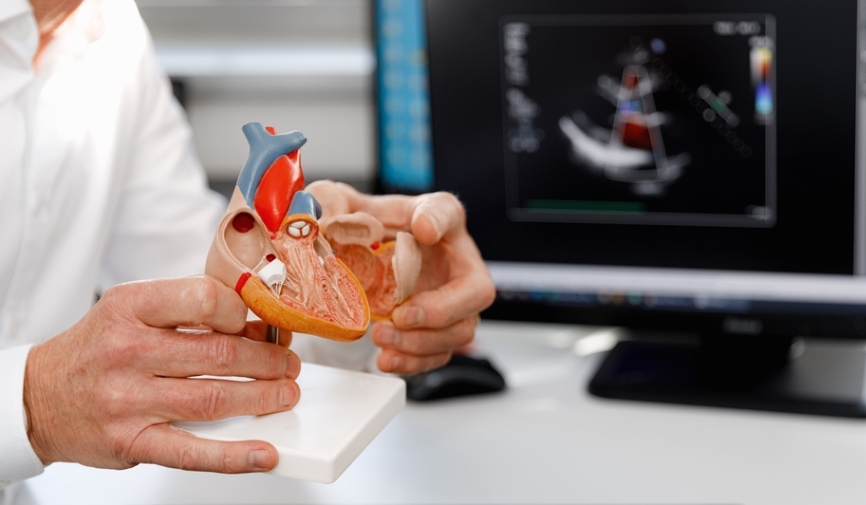Contents
ToggleImage Source: World Heart Federation
Every autumn, people around the world come together to celebrate World Heart Day. Created by the World Heart Federation, this day raises awareness of cardiovascular disease and promotes heart health all around the world.
We’re proud to be joining the celebration of heart-healthy lifestyles. That’s why we’ve decided to take this opportunity to bang the drum for World Heart Day 2024 and raise awareness of cardiovascular disease, as well as offer some top tips for a heart-healthy lifestyle.
What is World Heart Day?
World Heart Day began back in 2000, and since then, it’s blossomed into a global campaign that touches over 100 countries. The aim is simple – inform people about the dangers of cardiovascular disease and educate them on how to prevent and control these conditions. The goal is to unite people in the fight against cardiovascular health problems and encourage healthier lifestyles.
Celebrating World Heart Day: The 2024 Theme
Each year, World Heart Day focuses on a specific theme. The 2024 theme is ‘Use Heart for Action.’ It emphasises the importance of taking real, tangible steps to improve heart health. From encouraging individual people to take responsibility for their own heart health to advocating for stronger policies and initiatives at a national level, it’s a holistic approach.
Image Source: World Heart Federation
A comprehensive strategy is vital.
While raising awareness of cardiovascular disease is vital, action is necessary to make a real difference. That’s why we’re taking part in this campaign – to motivate countries to develop or support national cardiovascular health action plans.
Getting to the Heart of Cardiovascular Disease
What is cardiovascular disease?
Cardiovascular disease is the number one cause of death internationally. It is estimated to cause 17.9 million deaths every year. The name cardiovascular disease is an umbrella term for a group of disorders affecting the heart and blood vessels. These include coronary artery disease, which can lead to heart attacks; cerebrovascular disease, which can cause strokes; and other conditions like heart failure, arrhythmias, and hypertension.
Cardiovascular disease is mainly caused by atherosclerosis, a build-up of fatty deposits in the arteries, which restricts blood flow and can lead to serious health complications.
What are the risks of cardiovascular disease?
- High Blood Pressure: This condition can damage the arteries and lead to heart disease and strokes.
- High Cholesterol: High levels of cholesterol can build up in arteries, leading to atherosclerosis and increasing the risk of heart attack and stroke.
- Diabetes: People with diabetes are at higher risk of developing heart disease due to high blood sugar levels damaging the blood vessels.
- Obesity: Excess weight can increase the risk of heart disease by raising blood pressure, cholesterol, and the likelihood of diabetes.
- Physical Inactivity: Lack of exercise can contribute to obesity and other risk factors for heart disease.
- Smoking: Smoking damages the blood vessels and increases the risk of atherosclerosis and other heart conditions.
How to Spot Cardiovascular Disease.
Early detection is key to reducing the impact of cardiovascular disease. But what are some of the top ways to spot that you’re at risk?
1. Try to have regular health screenings.
Regular health check-ups with your doctor can help you to detect risk factors for cardiovascular disease early. Blood pressure, cholesterol, and blood sugar levels should be monitored regularly.
2. Know your family history.
If you have a family history of cardiovascular disease, you may be at a higher risk. Discuss your family history with your doctor to develop a personalised prevention plan.
3. Pay attention to your symptoms.
Don’t ignore symptoms like chest pain, shortness of breath, or palpitations. Seek medical attention quickly if you experience any of these signs.
How Can You Avoid Cardiovascular Disease?
1. Eat a heart-healthy diet.
Consuming a balanced diet rich in fruits, vegetables, whole grains, lean proteins, and healthy fats can help you maintain a healthy weight and reduce the risk of cardiovascular disease. Limit your intake of saturated fats, trans fats, sodium, and added sugars.
2. Take plenty of exercise.
Regular physical activity strengthens the heart and improves circulation. Aim for at least 150 minutes of moderate-intensity aerobic exercise or 75 minutes of vigorous-intensity exercise each week.
3. Avoid smoking.
As we’ve mentioned above, smoking is a major risk factor for cardiovascular disease. Quitting smoking can improve your heart health and reduce your risk of heart disease or stroke.
4. Limit alcohol consumption.
Excessive alcohol intake can lead to high blood pressure, heart failure, and even strokes. If you drink alcohol, do so in moderation.
5. Manage stress.
Chronic stress can contribute to heart disease. Find healthy ways to manage stress, such as exercise, meditation, yoga, or spending time with loved ones.
Want to Learn More About the Risks of Cardiovascular Disease?
At WEL Medical, we don’t just supply high-quality lifesaving equipment. We’re also committed to strengthening the chain of survival through raising awareness and building public knowledge in key areas. Whether it’s a heart-healthy diet, identifying the signs of heart disease, or the role of CPR and defibrillation in saving lives, our News page is full of useful insights.










